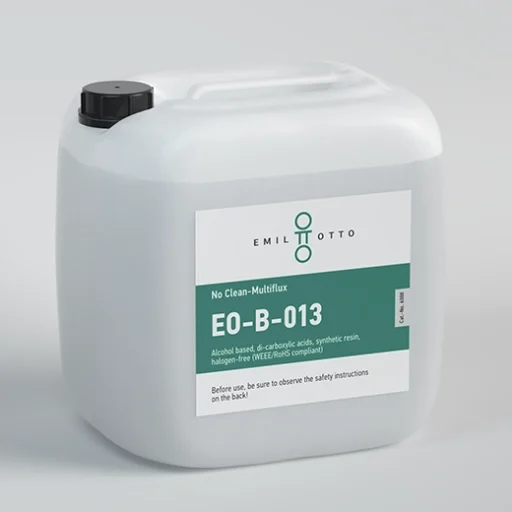No Clean-Flux, alcohol-based
Di-carboxylic acid complex, halogen-free (WEEE/RoHS compliant)
Type ISO-9454: 1231 // DIN EN 61190-1-1: L0 (REL0)

| Appearance/smell: | colourless pale-yellow, clear liquid |
| Hazardous goods: | Yes |
| Solids content: | 4.0 wt.-% |
| Acid number: | 32 – 35 mg KOH/g |
| Halogenide-free: | Yes |
| Resinous: | Yes |
| Density at 20 °C: | 0.796 (+/- 0.004) g/ml |
| Flash point: | 12 °C |
| Durability: | 12 months |
EO-B-013 is a powerful No Clean-Flux alcohol-based with di-carboxylic acids and synthetic resin. This flux has been developed for wave processes as well as for dip soldering processes and strand tinning. It can be applied
with all common application processes (except foaming). This flux is very versatile in use, good results have been achieved both with wave soldering and special applications. The general rule to apply as little quantity of flux as possible, is also applicable for this product.
Spray fluxes: With the dosing option quantify the flux, first set to 15 – 30 ml/min., observe the even distribution of flux on the circuit board (if necessary test with heatsensitive paper) and then adjust to the optimal quantity.
Preheating: With “simple” circuit boards a preheating temperature of 80 – 110 °C is recommended on the top side of the circuit board, with “more complex” boards from 100 – 130 °C. The flux can be used both in systems containing leades as well as those that are lead-free.